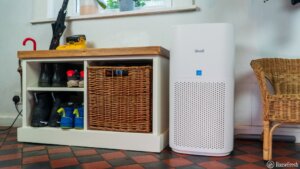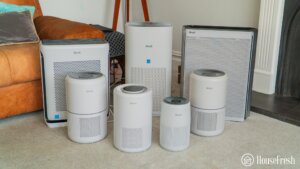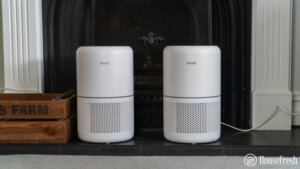Levoit is currently one of three brands for Vesync Co which has offices in Los Angeles, USA, Shenzhen and Hong Kong, China, and is traded on the Hong Kong Stock Exchange. Running since 2012, its revenue last year was $458 million, and it has 1.24k employees, according to financial data.
The Levoit Core series really changed up the game in the world of air purifiers back in the late 2010s. Previously, cheaper units performed poorly and it was often better to recommend consumers avoid them. With the Levoit Core 300, Levoit brought a really good CADR score for less than $100 and forced other manufacturers to improve their game. Unlike many cheaper units, the Levoit Core series contains no ionizer functions and just relies on efficient fans with good-quality air filters.
The Levoit Core Mini is still a “Core” unit but is much smaller than any other air purifier in the series. I expected this unit would start a new trend for “mini air purifiers,” and I was right. Since the Core Mini was launched, various smaller units from other manufacturers have been released.
As with all the reviews we do here at HouseFresh, we bought the Levoit Core Mini with our own money to avoid any biases of accepting free goods in exchange for reviews. Our ultimate goal is to share the data and let you decide if this air purifier sounds like a good fit for you. If an air purifier sucks, we have no problem saying it. You can read about our methodology here.
The overall score for the Levoit Core Mini incorporates first-hand data results from our battery of tests, as well as our ratings for customer service, brand transparency and design & UX. Check out the full scorecard below to see the split of categories.
The pros and cons of the Levoit Core Mini
A summary of our top-level findings after testing this air purifier following our methodology.
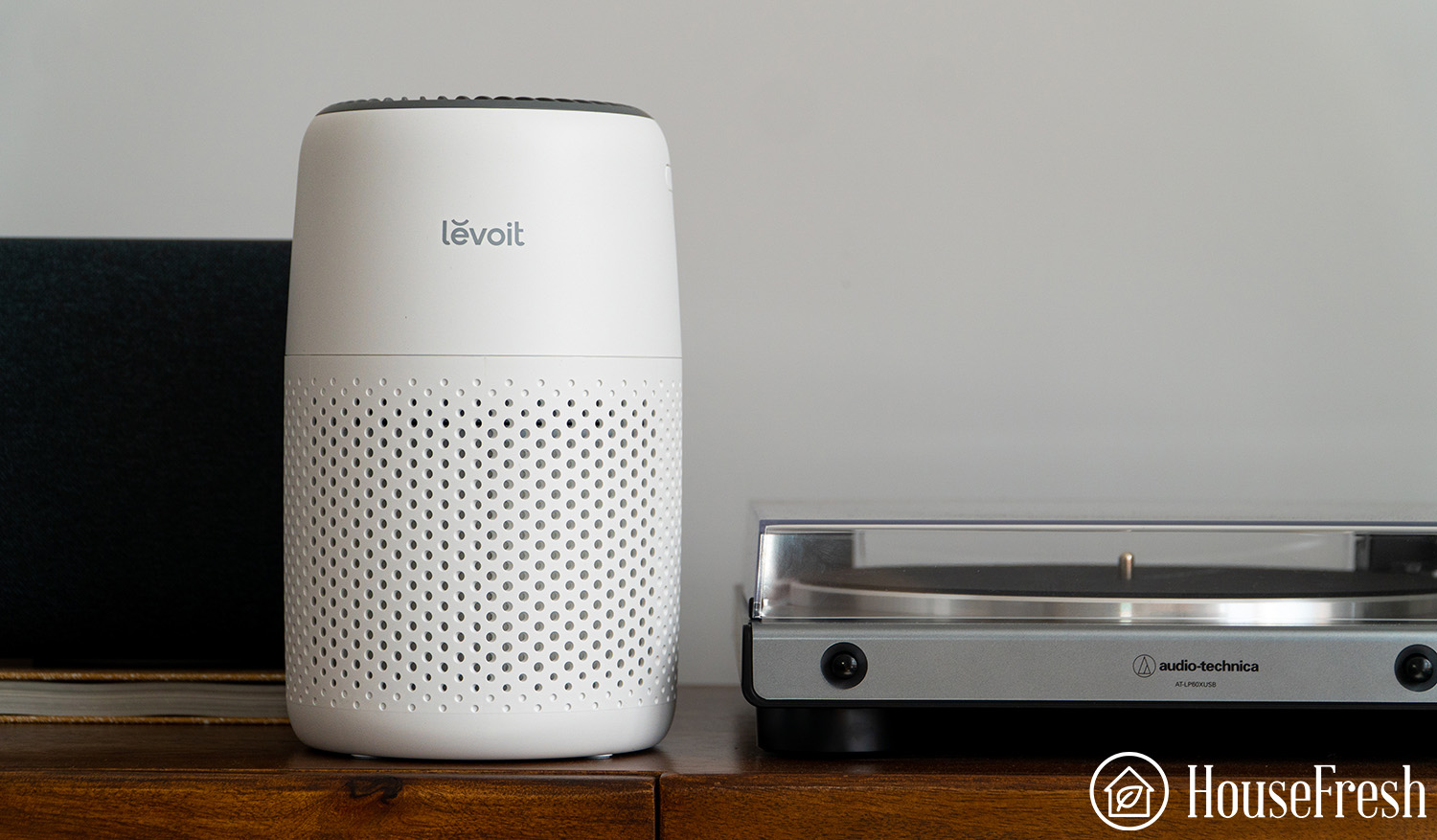
“Unfortunately, the Core Mini won’t be powerful enough for rooms in your home and filter replacement costs will be high compared to other small units.
That said, this small air purifier can be a good option for travelers and to be used in small spaces like a car or an RV.”

HouseFresh Founder
& Lead Tester
CONS
PROS
| Clean air delivery rate (CADR): | – Top speed PM1 CADR: 41 cfm – AHAM PM2.5 CADR: 41 cfm (smoke) |
| Filter technology: | Bonded filter including a pre-filter mesh, a particle filter and a carbon layer. |
| Recommended room size: | 28 sq. ft. (5 air changes per hour) |
| Dimensions: | 10.4H x 6.5D x 6.5W inches (26.4H x 16.4D x 16.4W cm) |
| Weight: | 2.2 lbs (1 kg) |
| Noise level in decibels from 3 ft. away: | Speed 1: 37 dB Speed 2: 38 dB Speed 3: 44.5 dB |
| Electricity consumption in watts: | Standby mode: 1.2 watts Speed 1: 2.8 watts Speed 2: 5.9 watts Speed 3: 6.4 watts |
| Filter lifespan: | 4 – 6 months |
| Manufacturer’s warranty: | 2 years |
| Country of origin: | United States |
| Country of manufacture: | China |
Filtration technology
The Levoit Core Mini has a small, bonded cylindrical filter with Levoit’s signature 3-stage filtration.
You get a pre-filter mesh over a particle filter lined with a layer of activated carbon on the inside.
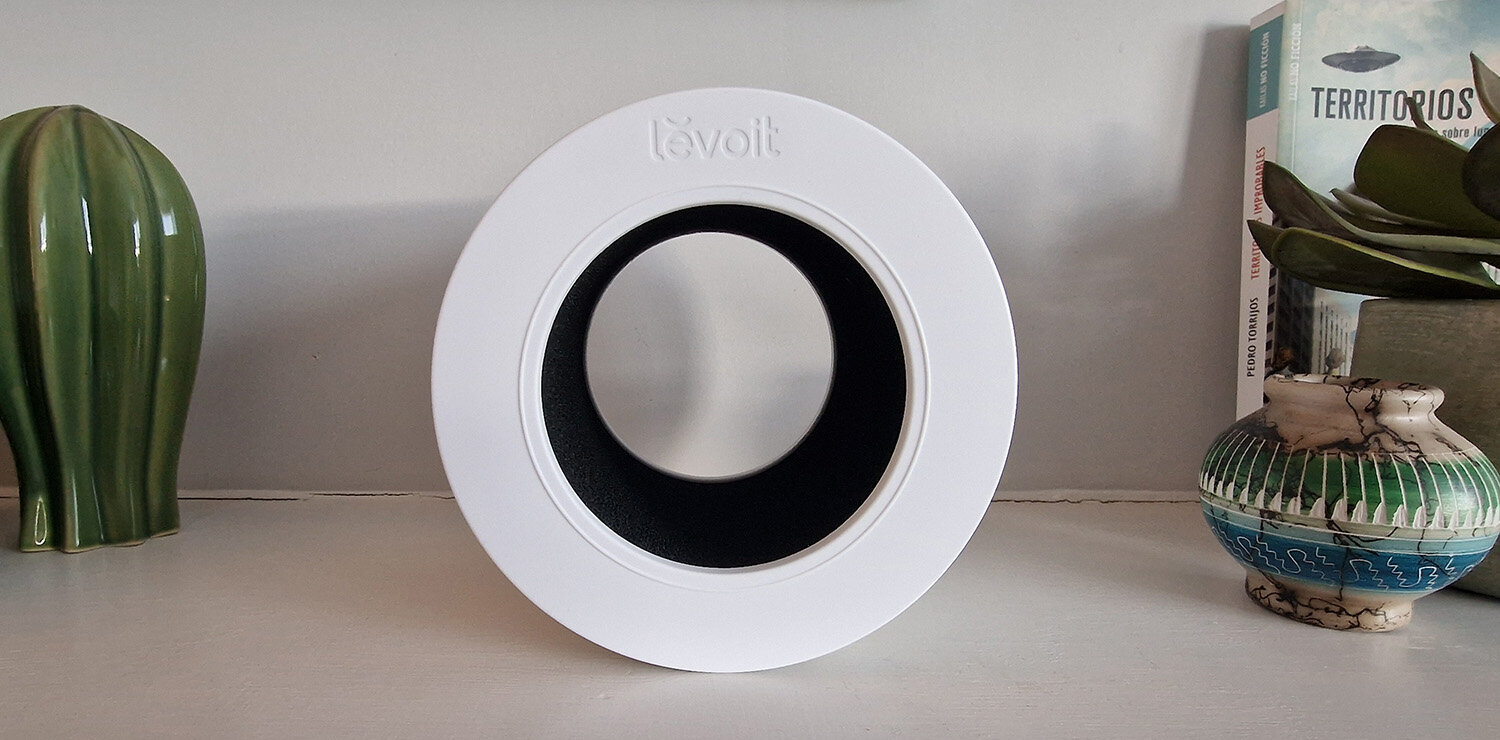
The filter is very small, which means that they will need replacing more often than other units in Levoit’s Core series like the 300S or the 400S.
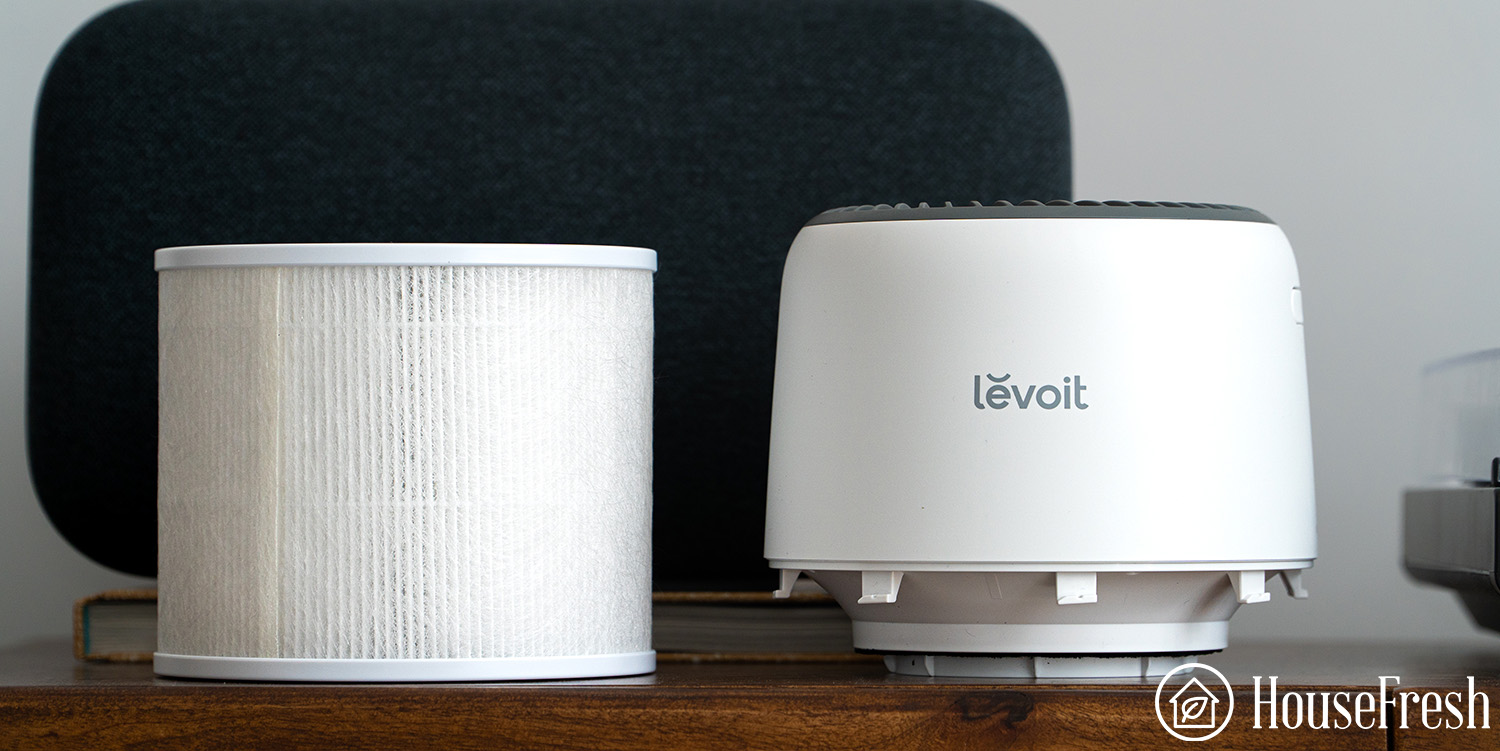
Levoit used to advertise the filters in their Core series as True HEPA filters but discontinued the mentions of HEPA in their advertising after Dyson challenged their claim in front of the BBB National Programs National Advertising Division (NAD). This doesn’t change the fact that these filters work, but it is important to highlight that they are not HEPA-certified.
Design, controls and features
The Core Mini is a mini air purifier that you can hold with one hand.
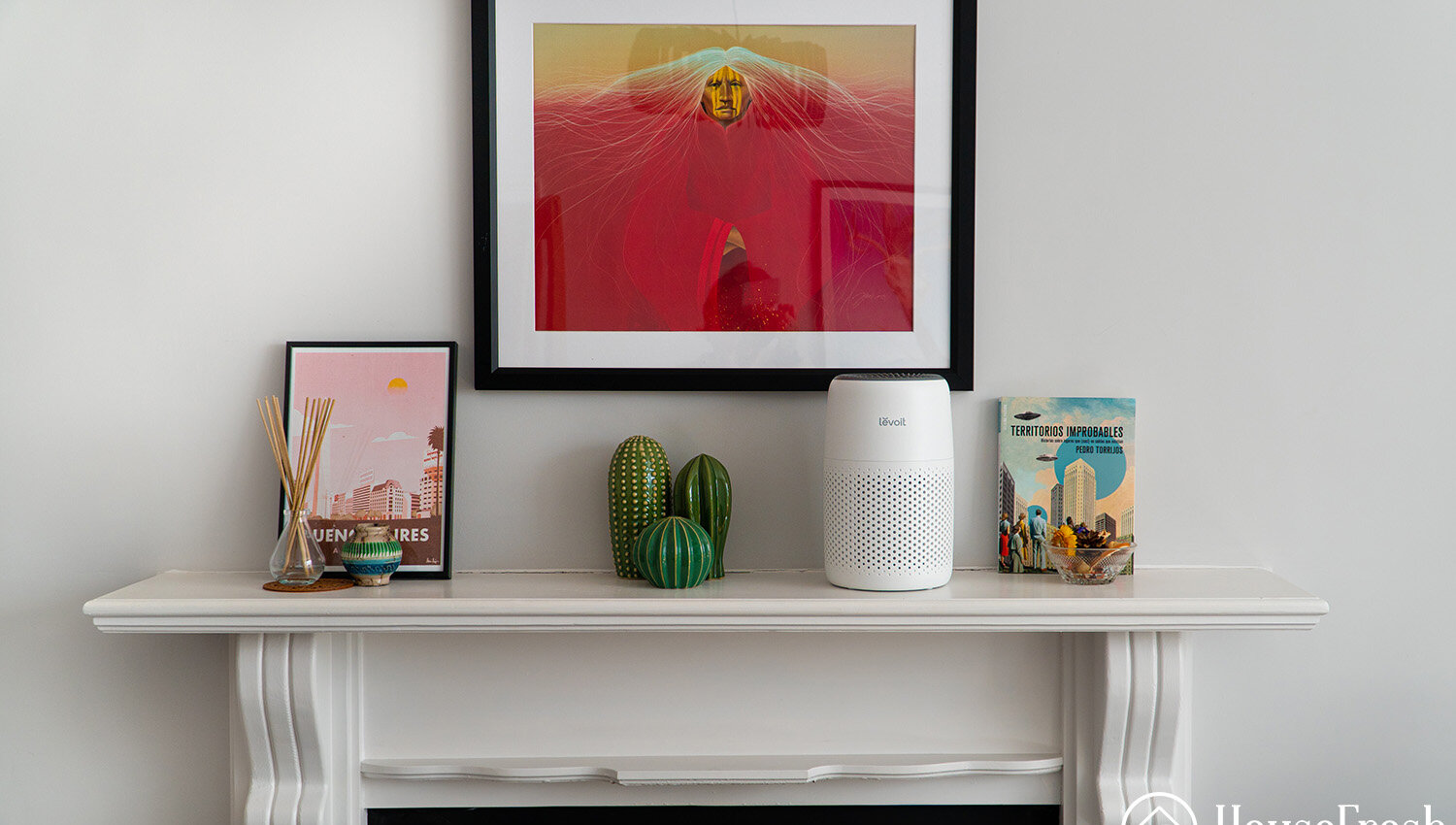
It is the smallest unit in the Core range, weighing just 2.2 lbs and standing 10 inches high. It’s easy to carry around with you.
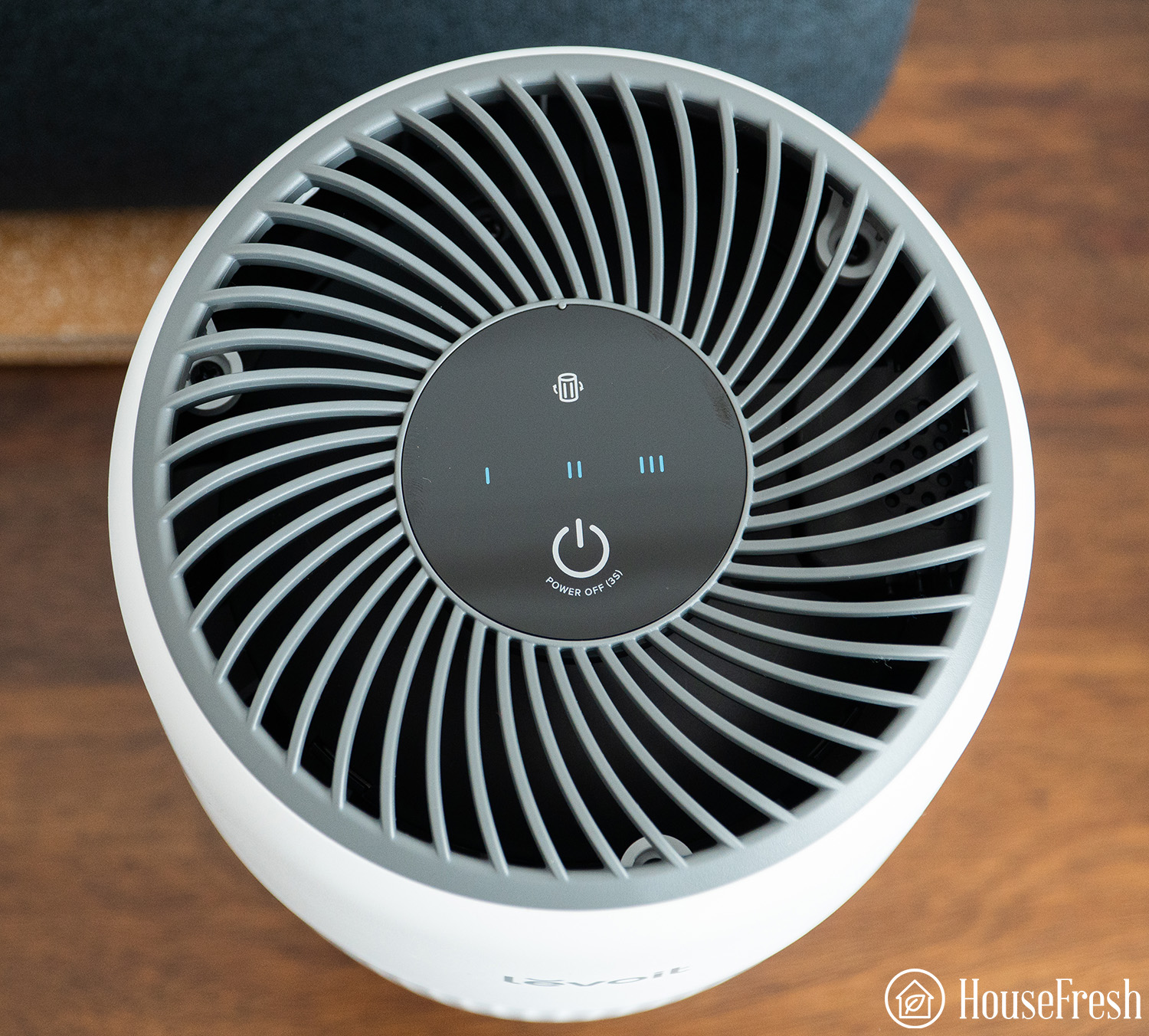
The control panel sits at the top and it has four buttons, including three fan speeds and the power button. You also get a filter replacement indicator.
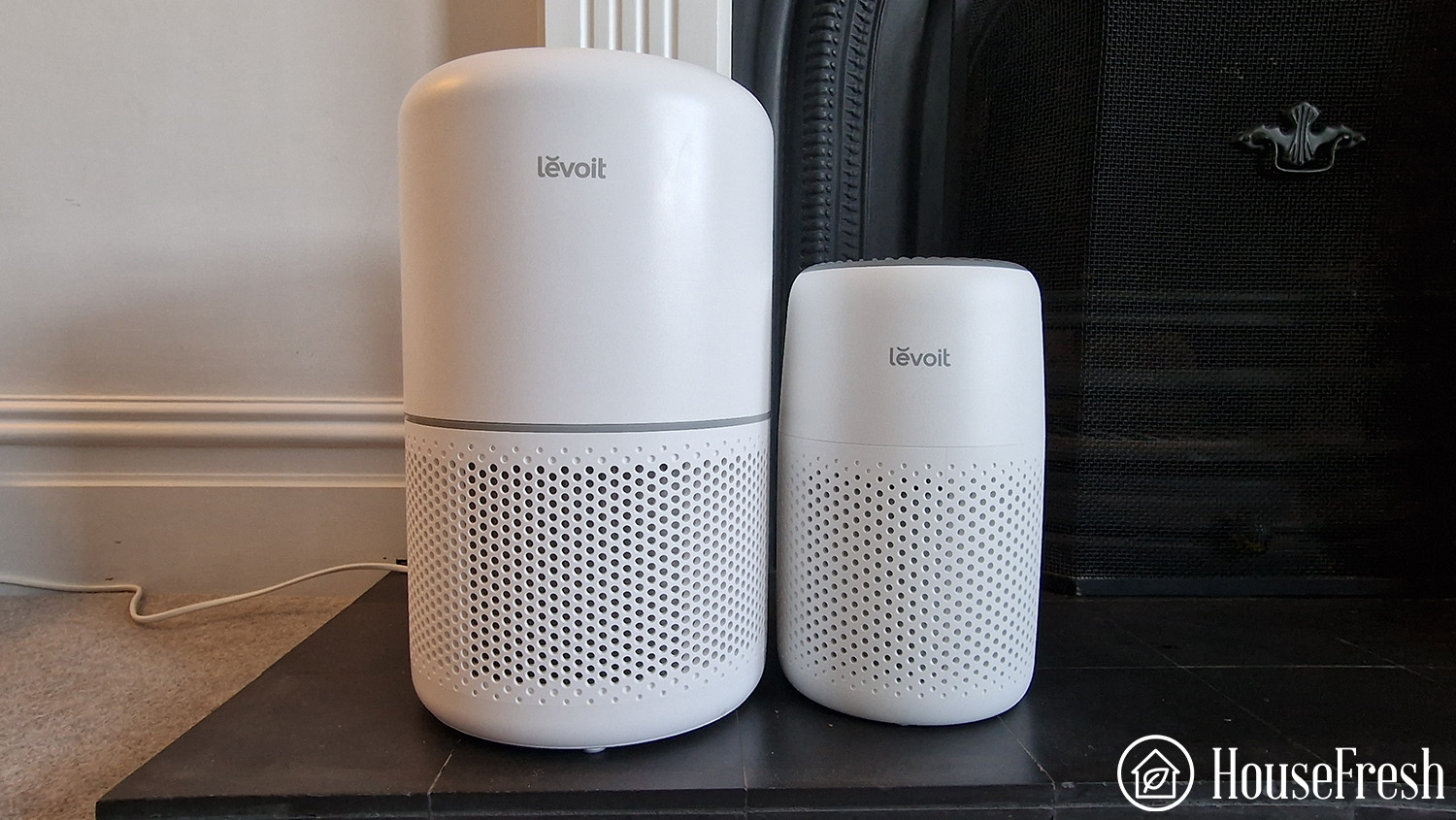
It is much smaller than most models, including the Levoit Core 300S, which will be considered a small air purifier by most people.
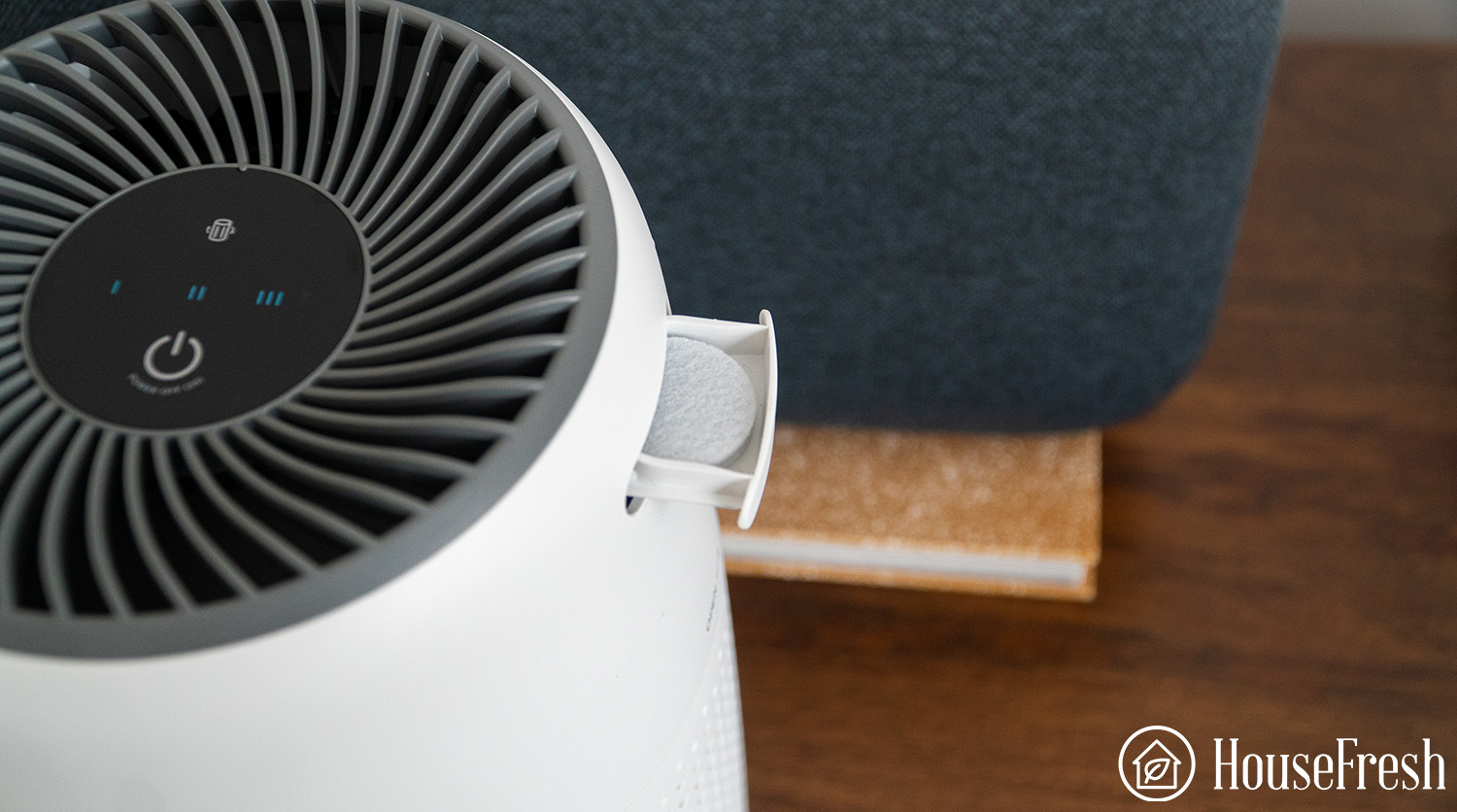
One unexpected feature of the Levoit Core Mini is the ability to diffuse essential oils.
It’s good that you can use any essential oil you already use, so Levoit doesn’t force you to stick to a specific one.
While I don’t believe many of the outrageous claims about the “science” of essential oils, it is a nice feature for an inexpensive air purifier that I imagine many people will be drawn to.
Air cleaning performance
The Core Mini needed 136 minutes to clean the air in our small 728 cubic feet test room, making it too underpowered for most rooms but a good alternative for an RV or campervan.

According to our PurpleAir Zen sensor, the Levoit Core Mini needed 136 minutes to achieve PM1 zero in our 728 cubic ft. test room. We estimate a PM1 CADR of 41 cfm, which would allow the Core Mini to provide five air changes per hour in spaces no larger than 61 sq. ft.
But this information in isolation won’t tell you much, so check out how this compares to other popular small air purifiers on the market today:
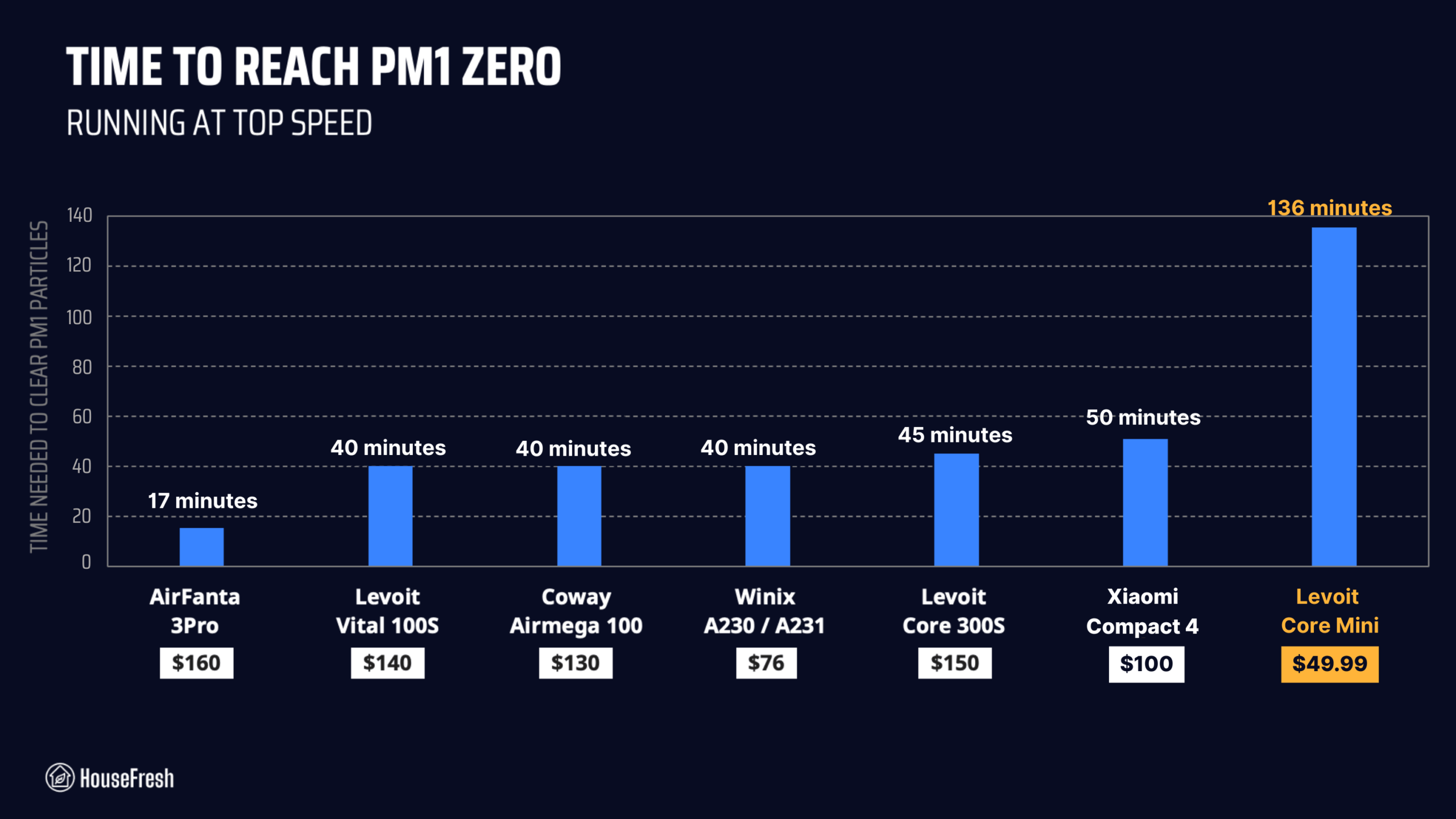
As you can see from the table, there is a reason why I always recommend our readers to buy the largest device they can live with. In simple terms, air purifiers are just a fan and a filter, so the bigger the fan and the bigger the filter, the better the performance.
In the case of the Core Mini, the $50 price tag might make it look very appealing but if you’re short on budget, I would recommend you to try and stretch to $75 to get a Winix A231 as it was able to complete our particle removal test in a third of the time it took the Core Mini.
Sound levels
In our testing, the sound levels of the Core Mini ranged from 37 dBA to 44.5 dBA.
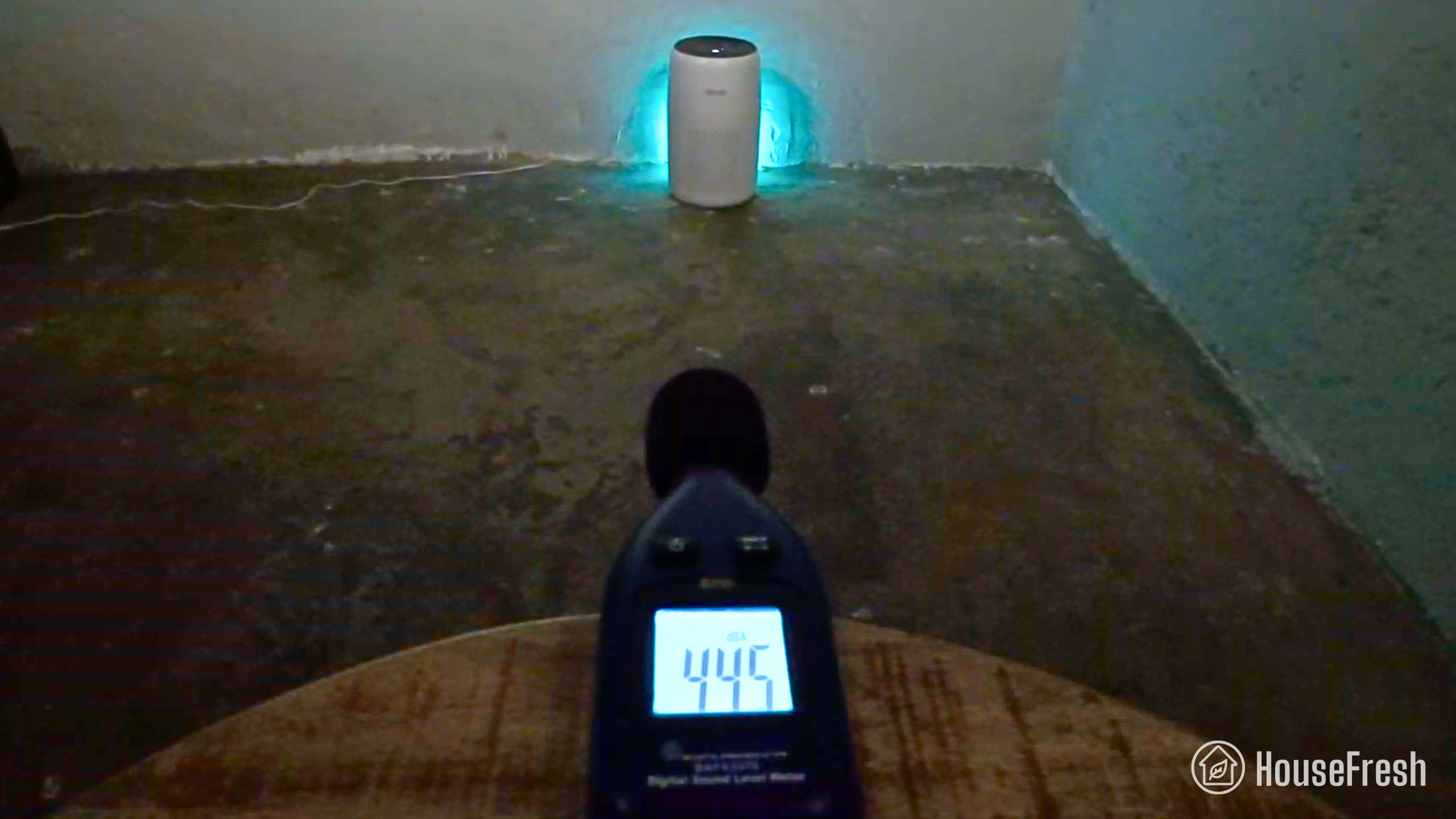
We used a sound level meter to measure how much noise our air purifiers generate at each fan speed.
At top speed, the Levoit Core Mini reaches 44.5 dBA. Check out the chart below to see how this compares to other similarly-priced air purifiers running at top speed:
But sound can be subjective so have a listen for yourself:
Long-term running costs
Running a Levoit Core Mini will cost you $81.96 per year, combining energy consumption costs and filter replacement prices.
As always, we used our energy meter to measure how much electricity the Core Mini uses when running at each fan speed and also while on standby. Energy consumption ranges from 1.2 watts on sleep mode to 6.4 watts when running at top speed.
This means that if you had to leave your 4 Pro running 24/7 at top speed, it would cost $7.11 in energy costs for a year, using average U.S. energy rates.
Considering you need to replace the filter every six months and that the replacement costs $24.99, you can expect to also spend $74.85 per year on filters.
When compared to other similar-performing air purifiers, the 4 Pro is generally cheaper to run, thanks to its low energy usage and low-cost OEM filters:
In comparison, you would be paying $60 for the Levoit Core 300S, cleaning much more air in the same period.
Bottom line: Should you buy a Levoit Core Mini?
With a dust CADR of 39 CFM, you won’t be able to use the Core Mini in a large space.
I like the Levoit Core Mini, but I do worry that it’s likely not the best air purifier for everyone.
It’s too small for medium to large rooms, and the costs of filters will add up over time. But it costs less than $50, which equates to $0.7 per 1 CFM, which is okay for a unit of this size.
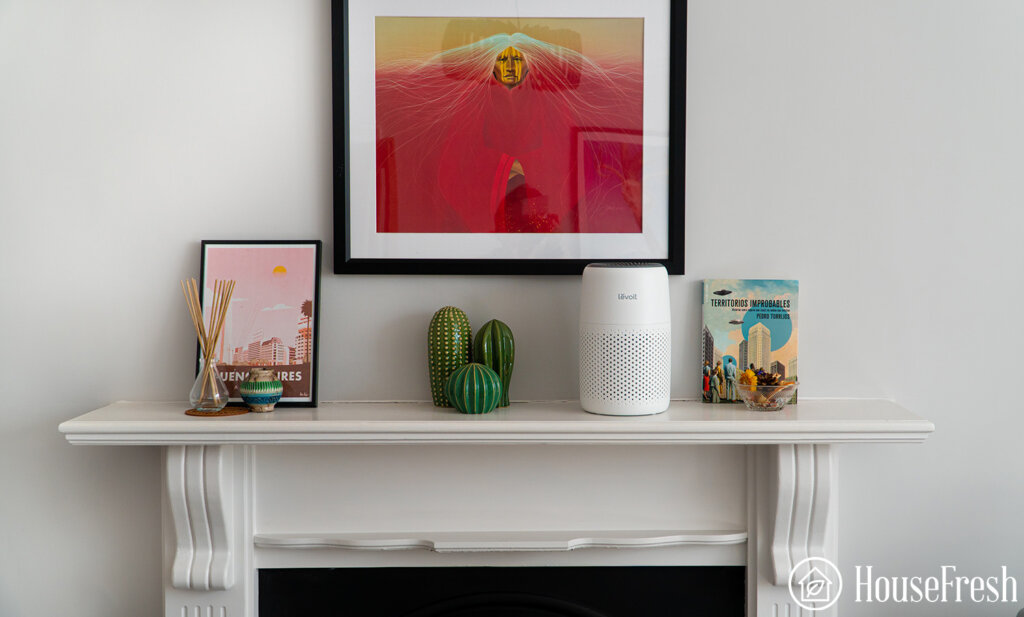
It is a good option for very small spaces like an RV or a car as it’s portable and easy to find a space for.
But if you are looking for the best $ to performance, then the older Levoit Core 300 will give you much better performance and similar filter costs. And the Winix A231 will cost $25 more initially but will give you three times the air cleaning performance of the Core Mini.


